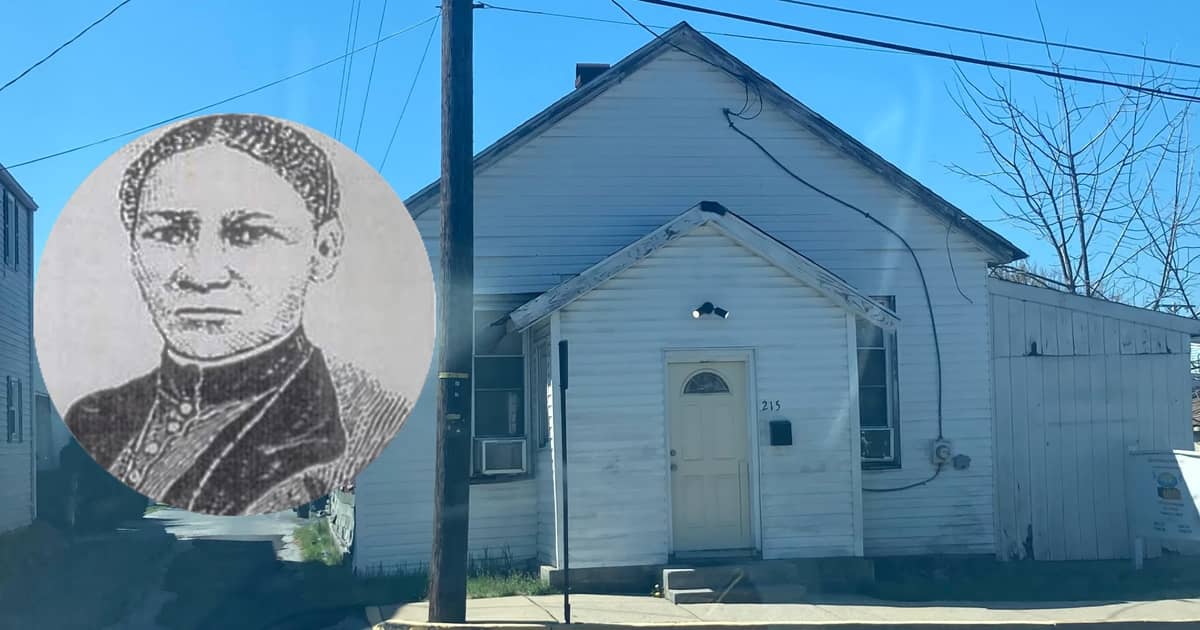The Reverend Harriet A. Baker made history as one of the country’s first Black female preachers. Though she made her mark on cities like Allentown and Columbia, she also called Lebanon home, opening a church here with a building that still stands today.
Baker was born a free woman in 1829, a rare occasion in that time – and her family was all too aware it put her at risk. Though she was free, kidnappers were all too willing to take free Black Americans, like Baker, to the south and sell them into slavery. Her mother, Harriet Eskins, had been enslaved herself, despite a reportedly noble lineage; her grandfather was said to be a Guinea king, with her father heir to the throne. Yet the slave trade allegedly broke up the royal family, with both her grandfather and father captured and sold into slavery. Eskins was desperate to keep Baker from becoming enslaved, too.
In 1842, Baker became a Christian, saying she experienced God’s presence while a group of Black women prayed and sang together. Three years later, she married William Baker, a fugitive slave; the couple fled Maryland for Columbia, Pennsylvania in an effort to avoid slave catchers, walking 48 miles to the free state with their seven-week-old daughter. Though Pennsylvania had abolished the slave trade, it didn’t keep the Bakers safe. The Fugitive Slave Act required free states, like Pennsylvania, to return escaped enslaved Americans, like William Baker, to be returned to their enslavers. He was eventually captured and brought to Maryland, and Baker showed uncommon bravery, openly fighting back and screaming for her husband to be freed. Guards in the office beat her and knocked her unconscious; when she woke, there were multiple men pointing pistols at her. They pulled their triggers, but none of them fired. Baker attributed this to godly intervention.
William Baker was tried in Philadelphia and found guilty, but four people helped to raise the money necessary, and he was released. The couple returned to Columbia, and in 1872, Baker felt called to become a preacher. It was a difficult career to pursue; Baker was illiterate, and decided to preach in a time in which female preachers were rarely accepted. But she worked hard, learning to read and write, and traveled to numerous communities around Pennsylvania preaching the gospel.
Though Baker is most well-known for the churches she preached at in Allentown and Columbia, she was also appointed to African Methodist Episcopal (AME) churches in Lebanon as well. It appears she may have founded at least one of the churches, located in North Cornwall Township at 215 South 16th Street, as Lebanon County property records (PDF) show that Baker held the deed as of 1891. That building still stands today, known as the Gospel Union Mission. Though the front of the building has been renovated, the original shell of the building remains. That church changed names multiple times, and in 1927, a fire nearly destroyed it.
She was also appointed preacher at St. Paul’s AME Church on South 10th Street in 1889 by the Philadelphia AME Conference. Her mother eventually passed away in Lebanon in 1895, while living with Baker, at the incredible age of 111 years old. Her husband likewise died in Lebanon, in 1892, and was buried here.

It’s not clear why Baker left Lebanon; perhaps the loss of both her mother and her husband left her with painful memories. But by 1897, she had relocated to Allentown, and her ties to Lebanon were largely lost to history. She died not long after, on March 1, 1913, and is buried in Greenwood Cemetery in Allentown, but even then, still maintained some of her Lebanon roots, having kept property here until her death. She was able to preach to thousands, always urging them to look not to her, but to Jesus, insisting she was simply the instrument through which his message was played.

“I think of myself as resembling a horn; as nothing but a horn,” she said in one of her speeches. “You all know what horn is and the uses that are made of it. The horn talks the sentiments of the person blowing it; it may sound the alarm of fire, of murder, or of danger; or it may give the glad sound of invitation to dinner to some half-starved soul who is hungering for the richness of the Master’s table, where all may freely partake of the breath of everlasting life.”
Special thanks to Pat Rhen, whose research and enthusiasm for local history made this article possible
Questions about this story? Suggestions for a future LebTown article? Reach our newsroom using this contact form and we’ll do our best to get back to you.

Keep local news strong.
Cancel anytime.
Monthly Subscription
🌟 Annual Subscription
- Still no paywall!
- Fewer ads
- Exclusive events and emails
- All monthly benefits
- Most popular option
- Make a bigger impact
Already a member? Log in here to hide these messages
Free local news isn’t cheap. If you value the coverage LebTown provides, help us make it sustainable. You can unlock more reporting for the community by joining as a monthly or annual member, or supporting our work with a one-time contribution. Cancel anytime.
























